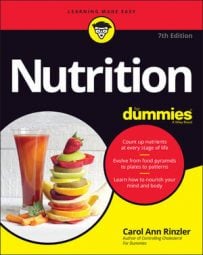- Fruits and vegetables: Plants contain some potential anticancer substances, such as antioxidants, chemicals that appear to prevent molecular fragments called free radicals from hooking up to form cancer-causing compounds.
However, despite early predictions that antioxidant-rich plant foods would reduce the risk of cancer overall, to date, no seriously controlled study has ever shown that belief to be true. However, several such studies do demonstrate a relationship between eating lots of fruits and vegetables and having a lower risk of a specific type of cancer.
For example, in 2010, data from a study conducted by The National Institute for Public Health and the Environment in the Netherlands and published in Cancer Epidemiology, Biomarkers & Prevention, a journal of the American Association for Cancer Research, did suggest that this kind of diet would decrease the risk of one type of lung cancer in current smokers. Besides, fruits and veggies taste good. So enjoy them.
- Foods high in dietary fiber: Human beings can't digest dietary fiber, but friendly bacteria living in your gut can. Chomping away on the fiber, the bacteria excrete fatty acids that appear to keep cells from turning cancerous. In addition, insoluble dietary fiber helps speed food through your body, reducing the formation of carcinogenic compounds.
For more than 30 years, doctors have assumed that eating lots of dietary fiber reduces the risk of colon cancer, but in 1999, data from the long-running Nurses' Health Study at Boston's Brigham and Women's Hospital and Harvard's School of Public Health threw this assumption into question. Since then, several very large studies — one with more than 350,000 people! — confirmed that dietary fiber probably has no protective effect against colon cancer. But even if dietary fiber doesn't fight cancer, it does prevent constipation. One out of two ain't bad.
- Low-fat foods: Dietary fat appears to increase the proliferation of various types of body cells, but not all fats appear to be equally guilty. In several studies, fat from meat seems linked to an increased risk of colon cancer, but fat from dairy foods comes up clean. In the end, the link between dietary fat and cancer remains up in the nutritional air . . . so to speak.
The American Cancer Society Advisory Committee on Diet, Nutrition, and Cancer Prevention issued a set of nutrition guidelines that shows how to use food to reduce the risk of cancer. These are the American Cancer Society's recommendations:
- Choose most of the foods you eat from plant sources. Eat five or more servings of fruits and vegetables every day. Eat other foods from plant sources, such as breads, cereals, grain products, rice, pasta, or beans, several times a day.
- Limit your intake of high-fat foods, particularly from animal sources. Choose foods low in fat. Limit consumption of meats, especially high-fat meats.
- Be physically active. Achieve and maintain a healthy weight. Be at least moderately active for 30 minutes or more on most days of the week. Stay within your healthy weight range.
- If you drink alcohol, drink in moderation. Moderate consumption means no more than one drink a day for a woman, two for a man.

